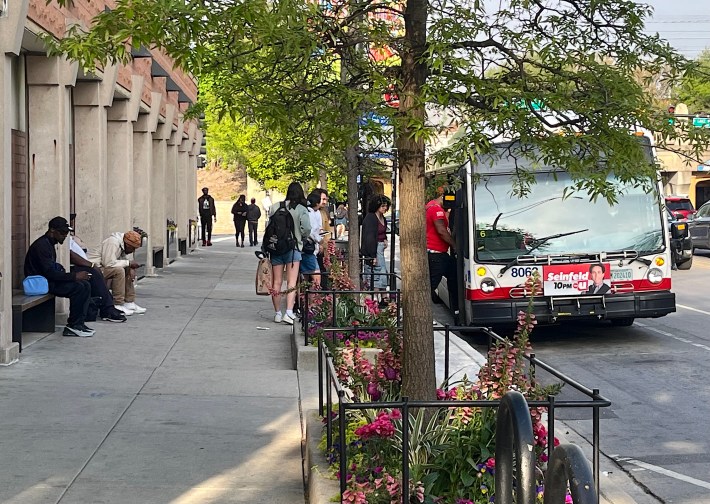
By Micheál Podgers
Micheál Podgers is Midwest Policy Lead at Climate Cabinet. He's an urban planner and transit expert. He lives in Chicago.
Chicagoland’s regional transit system was not designed for the way we travel today, and decades of disinvestment have inhibited our ability to improve it. Everyday, countless trips that should be straightforward become hard. The status quo is not tenable. And unless the Illinois General Assembly acts immediately, it’s about to get a lot worse.
That’s why our state legislature needs to put regional politics aside and pass the Metropolitan Mobility Authority Act. We live in one of the largest major metropolitan areas in the country. Passing this critical transit governance and funding reform legislation is the only way to deliver the world-class regional transit system we need and deserve. And if we don’t enact this legislation, public transportation is at serious risk of deteriorating even further. We’ve kicked the can down the road for too long. Illinoisans simply cannot afford any more delays.
If lawmakers don't enact and fund MMA by May 31, transit workers will immediately begin to receive WARN letters that layoffs are planned. It's predicted that almost 3,000 jobs will be eliminated.
In addition, it's estimated that up to 40 percent of bus and train service would be cut. That very well might be impossible to recover from.
Right now, our region’s transit system, which consists of the Regional Transportation Authority and the three agencies it oversees – the CTA, Metra, and Pace – is stuck in the past and divested.

Transit isn’t reliable when bus routes terminate a mile short of destinations just because we have reached the political boundaries of the City of Chicago. Transit isn’t reliable when Pace schedules its buses to leave 20 minutes or more after a Metra train arrives at a transit hub, and Metra doesn’t coordinate with Pace either. Transit doesn’t work when riders need to pay multiple fares just to get from Point A to B. Even with some of the best transit coverage of any U.S. city, it is no wonder that so many Chicago area families feel compelled to buy multiple motor vehicles. When our transit system creates so many barriers to use, it is inevitable that people give up on transit.
But it doesn’t need to be this way. We have everything we need to make an integrated public rtransportation system work for all Chicagoland residents. We just need better governance and full funding so the regional transit we have can live up to its potential.
The Metropolitan Mobility Authority Act addresses important issues like broken fare policy, poor service coordination, and lackluster expansion efforts by modernizing public transportation governance and creating a unified transit system.
Investing in our region’s public transportation system will enable leaders to fully implement many needed changes to improve the rider experience and make transit more attractive to newcomers and returning riders. Service coordination will reduce wait times between buses and trains. Governance reform will create a more transparent, accountable structure, and it will provide all of us with an equal stake in our transportation system. Simplified, single-fare systems will make it easy to transfer between commuter trains, the 'L', and buses, making trips faster.

A good transit system also has benefits for those who never ride. It helps sustain a robust economy and relieves congestion by reducing car traffic. This, in turn, will increase access to work opportunities, reduce household transportation costs, make roads safer, and improve air quality and health outcomes while reducing our carbon footprint. In fact, transportation is the largest single source of pollution that causes climate change in our state.
Creating a unified transit system across Northeast Illinois will allow us to serve riders' needs now and tomorrow. It will let us get to our destinations, access more jobs, save money, spend less time stuck in traffic, and breathe cleaner air.
By Saturday, the Illinois legislature must pass this critical transit governance and funding reform. If it fail to do so, workers will lose their jobs and service could deteriorate past the point of no return. We live in a world-class city and should have a world-class transit system to match. By passing the Metropolitan Mobility Authority Act, our state will halt the dangerous decline of our transit system and instead take an important step in building a better quality of life for all Illinoisans.

Did you appreciate this post? Streetsblog Chicago is currently fundraising to help cover our 2025-26 budget. If you appreciate our reporting and advocacy on local sustainable transportation issues, please consider making a tax-deductible donation here. Thank you!





